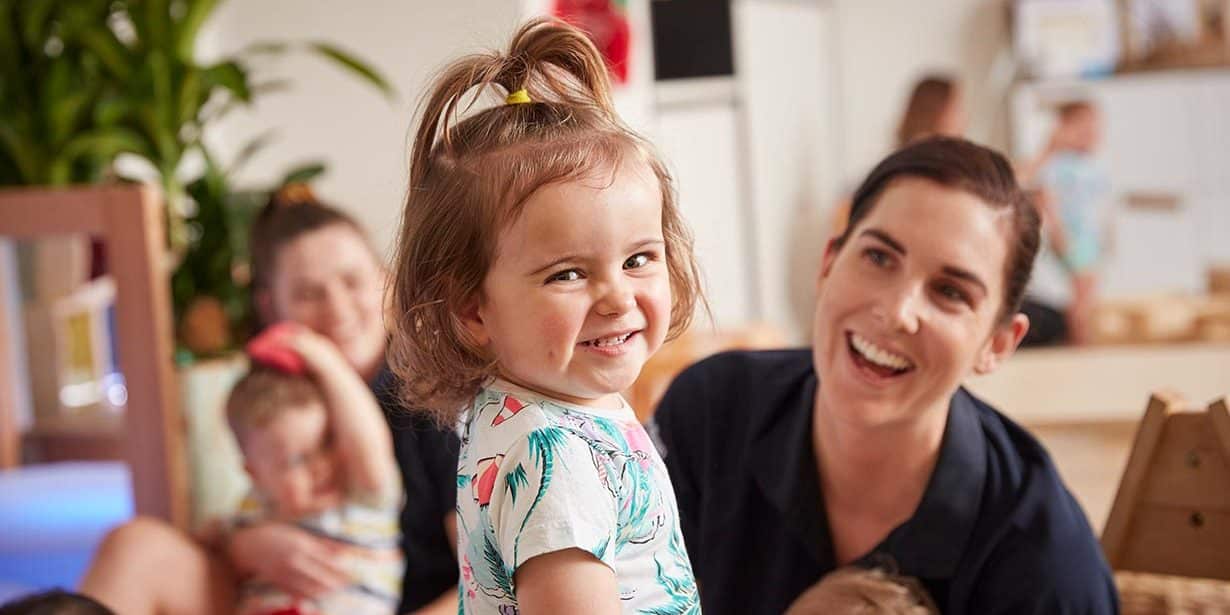It’s never too early to start learning a second language!
Language and communication start developing from birth — and by their first birthday, most children already recognise all the sounds that make up their native language.
Introducing another language early on helps children make sense of their world and connect with the people around them in new and meaningful ways.
We’re lucky to live in a wonderfully multicultural country, where people from diverse backgrounds have shaped Australia into the vibrant place it is today.
A question we often hear is: “Will learning another language too early confuse my child or affect their first language?”
The good news? It’s quite the opposite! Learning a second language actually strengthens a child’s understanding of their first.
How learning another language helps your child grow
Boosts English skills:
When children learn a second language, they start using different parts of their brain to understand how words and grammar work. As they compare the new language to English, they actually gain a deeper understanding of their own language — helping them become stronger readers and writers.
Builds focus and memory:
Learning another language is like a workout for the brain! It strengthens memory, helps with focus, and improves a child’s ability to retain and recall information — skills that benefit all areas of learning.
Encourages cultural understanding:
Exploring another language also opens the door to new cultures and ways of life. It helps children develop empathy, respect, and an appreciation for diversity — qualities that will shape them into open-minded, global citizens of the future.
What are the advantages of learning a second language?
When we’re asked why a child should learn a second language, we explain that a significant advantage for many families in learning a language connected to their history, is that it deepens their connection to one another, their extended family, and their heritage.
Bilingual children are able to more confidently communicate with family members who might not be fluent in English. It also means that children can hear stories about family history and heritage from an early age. Hearing these stories first-hand plays an important part in a child’s development and understanding of self-identity.
Why children should start learning a second language before primary school
Some parents wonder whether learning a second language at a young age might be too much. It’s a common question — especially when children are still finding their feet with their first language.
It’s completely normal for bilingual children to mix languages at first — starting a sentence in one and finishing in another. This is just part of how their brains are learning to juggle two systems at once. As their communication skills grow, they naturally separate the languages and become fluent in both.
The benefits of learning a second language really are endless — and there are lots of simple ways you can nurture this skill at home.
How to support your child’s second language learning at home
Learn together
You don’t have to be a native speaker to get involved! Try learning the language alongside your child — it’s a fun way to bond and show them that learning is something you can enjoy together.
Make it part of everyday life
Bring the language into your daily routine through play, storytime, cooking, or other hands-on activities. The more your child hears and uses the language in real-life situations, the more naturally it will stick.
Explore outside
Turn a walk or trip to the park into a mini language adventure! Point out and name things you see — trees, birds, colours — in your child’s second language. Little moments like these make learning feel effortless.
Connect with others
Find opportunities to practise with friends, family, or other children who speak or are learning the same language. Hearing others use it helps build confidence and shows your child how language connects people.
Sing together
Songs are one of the best (and most joyful!) ways to learn. Singing in another language helps children pick up new words, rhythm, and sentence patterns — all while having fun. So go ahead and sing that nursery rhyme loud and proud!
ELLA at Guardian Childcare
At Guardian Childcare, we introduce children to new languages through Early Learning Languages Australia (ELLA). This government-supported program is part of our Flying Start to School two-year kindergarten / preschool program and supports children to explore the richness of different cultures. ELLA also encourages families to share their home languages, making learning a collaborative and exciting experience for everyone.




